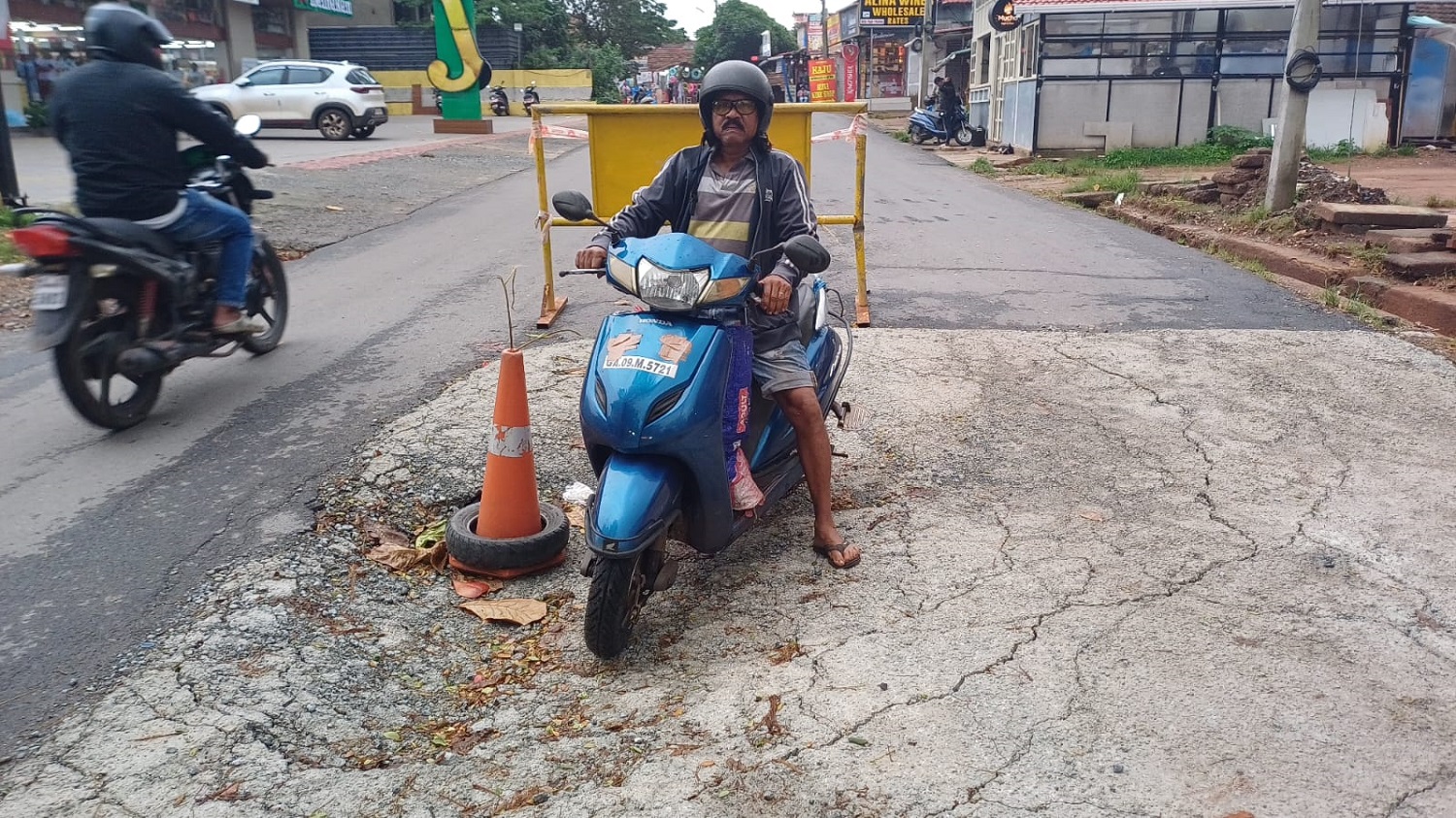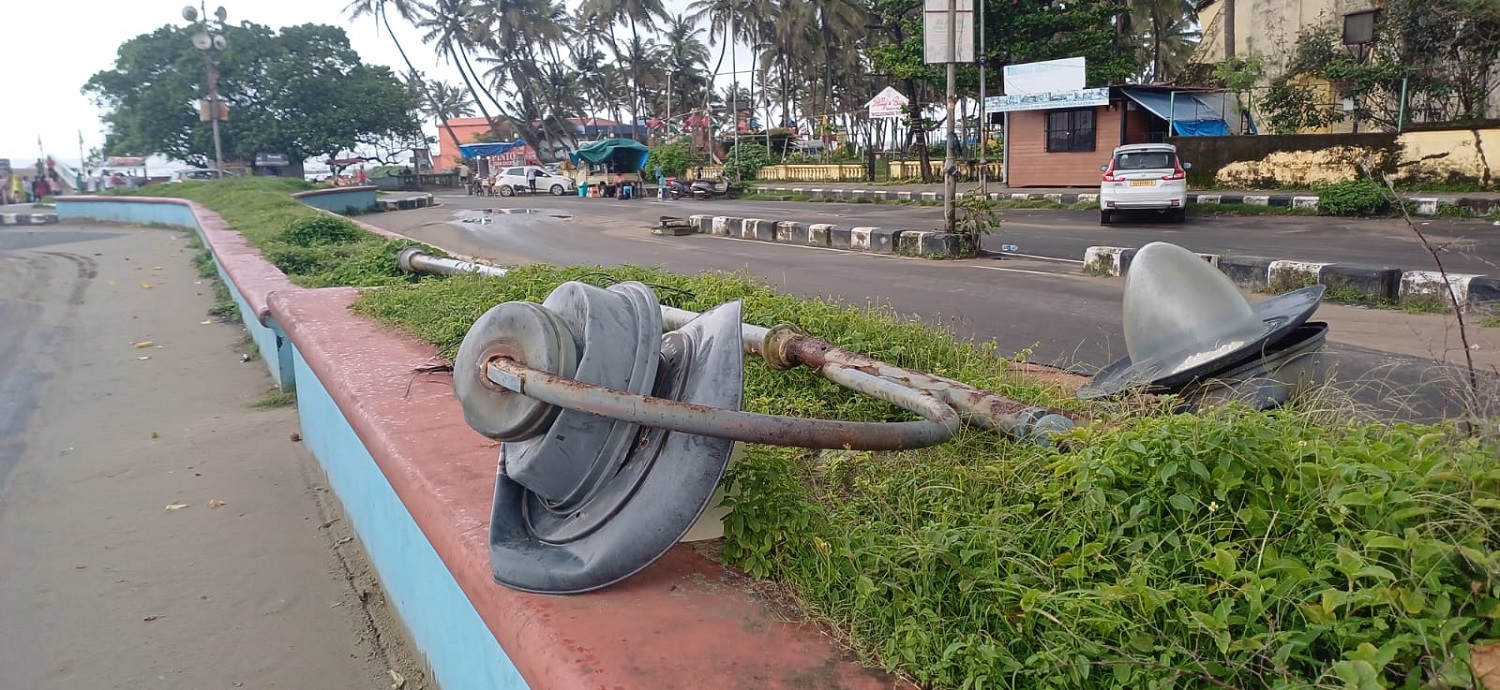Authorities slammed for inaction; citizens insist barricades aren’t a solution, demand immediate repairs of road

The sunken state of the road leading to the Colva beach. A damaged ornamental lamp pole lying at the beach square.
Photo Credits: Santosh Mirajkar

MARGAO
Motorists have expressed their concern over the ‘sinking’ road leading to the Colva beach, with locals wondering whether the authorities will wake up only after a major accident.
That’s not all. At the beach square, the authorities are yet to lift away the corroded ornamental lamp poles that had come crashing down during strong winds. Citizens have also questioned the rationale behind not dismantling the poles in the interest of safety and security of visitors to the iconic beach.
Motorists have complained that the sinking road could result in a major tragedy if not repaired on a war footing. A drive down the Colva beach road revealed that the traffic police have erected a barricade to caution the motorists traveling on the busy road.
Citizens as well as motorists pointed out that the sinking road and the barricade right on the middle has narrowed the motorable stretch of the road, causing traffic congestion. “When visitors from far and wide come to the Colva beach, the authorities should have intervened and repaired the road. A barricade is certainly not a solution to the issue. Hope better sense prevails and the authorities take up the work on a war footing,” he said.
Meanwhile, a citizen of Colva Arun Kalekar has lamented that the Tourism Department has not yet towed away the damaged lamp poles, which had come crumbling down recently. When Colva beach has got a tag of being an iconic beach, the scrap lamp poles just lying at the beach square certainly does not augur well for the village.
“We fail to understand why the Tourism Department of the Goa Tourism Development Corporation or the Electricity Department has not lifted away the damaged poles. These authorities should take a call and also remove other poles which pose danger to the visitors and tourists”, Kalekar added.